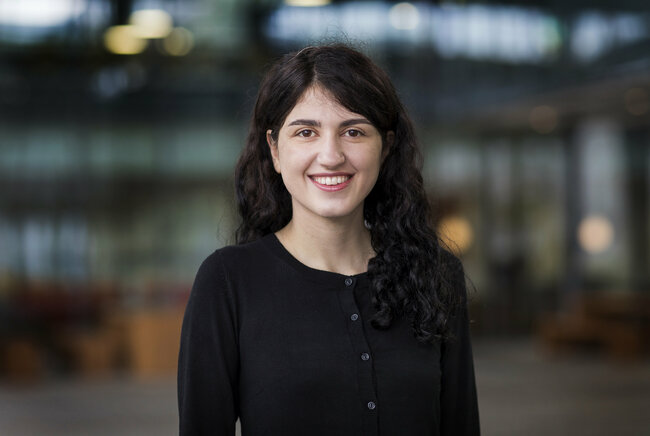Serum substitute for bone tissue engineering
Sana Ansari defended her thesis at the Department of Biomedical Engineering on May 10th.

In her PhD thesis, Sana Ansari points out the problems related to fetal bovine serum (FBS), the most commonly used nutrient source for culturing cells in laboratories. Based on the detected problems, Ansari developed a substitute for this serum for bone tissue engineering. Her serum substitute medium can be used in place of FBS, especially when the formation of new bone in a laboratory environment is central. Ansari's solution also enables the influence of soluble factors on bone formation and resorption to be studied in a less variable environment and without being overshadowed by unknown factors in FBS.
Tissue engineering is a discipline that integrates biology with engineering to repair, restore, or govern living tissue through the use of biomaterials, cells, and biochemical factors. Bone tissue engineering has emerged to facilitate bone regeneration of large bone defects, such as those resulting from trauma, metabolic diseases, infection, or tumor removal. To induce bone regeneration in situ, specific scaffolds have been designed and developed that can be equipped with bioactive factors that induce bone formation. In addition to the cell-free approach that supports bone regeneration, principles from bone tissue engineering have been applied to develop functional artificial tissue in vitro for subsequent implantation into the bone defect. In this approach, cells with or without bioactive molecules are placed on a three-dimensional (3D) riser to form an in vitro tissue.
Human bone
Advances in the development of such no-engineered tissue can also be used to create 3D in vitro models of human bone. These tissue models facilitate the study of complex psychological and pathological processes as well as the evaluation of new therapeutic approaches. In addition to using sophisticated risers to mimic the 3D environment of the tissue, cell types, bioreactors (for mechanical stimuli required for bone growth), and biochemical factors (to control cellular differentiation and activity) should also be considered in bone tissue engineering studies.
Fetal bovine serum
Cell culture composition plays an important role in developing an artificial tissue construct. Fetal bovine serum (FBS) is a widely used supplement for cell cultures that provides cells with a wide spectrum of macromolecules, proteins, lipids, trace elements, vitamins, and adhesion factors essential for cell growth and survival. However, many disadvantages have been attributed to the use of FBS for cell cultures, including scientific, ethical, and safety concerns. The undefined, complex, and inconsistent composition of FBS has been shown to greatly affect the outcome of experiments. The deposited, mineralized matrix is one of the most important outcomes of bone tissue engineering, but the use of different brands or overlays of FBS can result in wide variation in the deposition of minerals in the matrix. Alkaline phosphatase (ALP) is an enzyme produced by osteoblasts during bone formation and is present in FBS. ALP contributes to changes in concentrations of phosphatase in the medium, in mineral deposition in the extracellular matrix (ECM) produced in vitro, and osteogenic differentiation. The variability of ALP activity in different FBS brands can affect experimental outcomes. Therefore, specialized serum substitute media for tissue engineering should be developed to avoid the drawbacks of FBS use in cell cultures. With this research, Ansari developed such specialized serum substitute media for bone-specific cell types, bone-forming osteoblasts, and bone-resorbing osteoclasts. These media can promote both cell growth and survival, and differentiation of osteoblasts and osteoclasts. Her medium not only reduces the influence of unknown factors of FBS, but also enables the study of different soluble factors (chemical or biological) in cell behavior.
Title of PhD thesis: “Serum Substitute Medium for Bone Tissue Engineering Applications”
Supervisors: Sandra Hofmann and Keita Ito